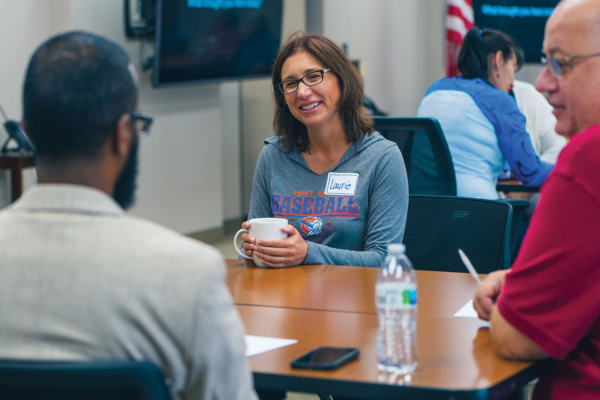Ten Findings for School Leaders From Our Towns
August 01, 2019
Our Towns provides insight into the good news that’s often missing in traditional media formats

Growing up in a small eastern Washington town and serving as an administrator in four school districts in Washington, including Seattle and Spokane, pulled me into the interesting community studies documented by James and Deborah Fallows. I know these stories, but with different names. They reflect the grit, energy and dynamic creativity of people across America.
That schools are an integral part of this creativity and energy is not surprising, nor is the role that teachers, principals and superintendents play in collaborating with parents, students, politicians, business and religious leaders and other civic leaders. Our Towns provides insight into the good news that’s often missing in traditional media formats. Reading these stories will provide encouragement, ideas and inspiration for continuing your school leadership endeavors.”
I captured 10 takeaways about the workings of schools from Deborah Fallows’ observations about the schools and educators she visited, which are discussed more fully in Our Towns. Fallows co-authored the 2018 book with her husband, James.
No. 1: Enthusiastically embrace the people served by the school system. Be alert, open-minded, attentive and flexible in responding quickly to new challenges (e.g., arrival of immigrants and refugees with services unique to their specific needs).
No. 2: Schools have a natural role in being a place for children and families to meet, make friends and create understanding rather than highlight their differences. Include the parents and extended family members in the process.
No. 3: Schools and the education leaders who guide teachers, specialists and support staff know local opportunities ahead of almost everyone else. School leaders are at the forefront of collaboration to create programs that serve the needs of the community and its children. Successful programs engage teachers as learners, change agents and decision makers.
No. 4: Seek and feed collaborative efforts with community colleges and/or local universities. New ideas emerge when the people from different institutions know each other and work together.
No. 5: Superintendents are financial analysts, diplomats, negotiators, politicians, counselors, sociologists, consensus builders, educators, marketers and more. Work continuously to build and expand skill sets and apply them in leadership.
No. 6: Know your community inside and out; find people who will collaborate with you. Understand the assets of your town and get to know the dreams and hopes people have for their children; then respond.
No. 7: School leaders must market and sell their work to the community at all levels, inside and outside the school system. Engage those without children in school and/or those who are skeptical of the schools.
No. 8: Public libraries are open to all, democratic and trusted; build relationships to expand upon these assets.
No. 9: Travel, listen, communicate, ask, read — and seek links between approaches that work in some communities and might make sense in your own community.
No. 10: Leaders can be found everywhere — parents, teachers, politicians, students, business owners. Community change can begin with schools.
Advertisement
Advertisement
Advertisement
Advertisement



